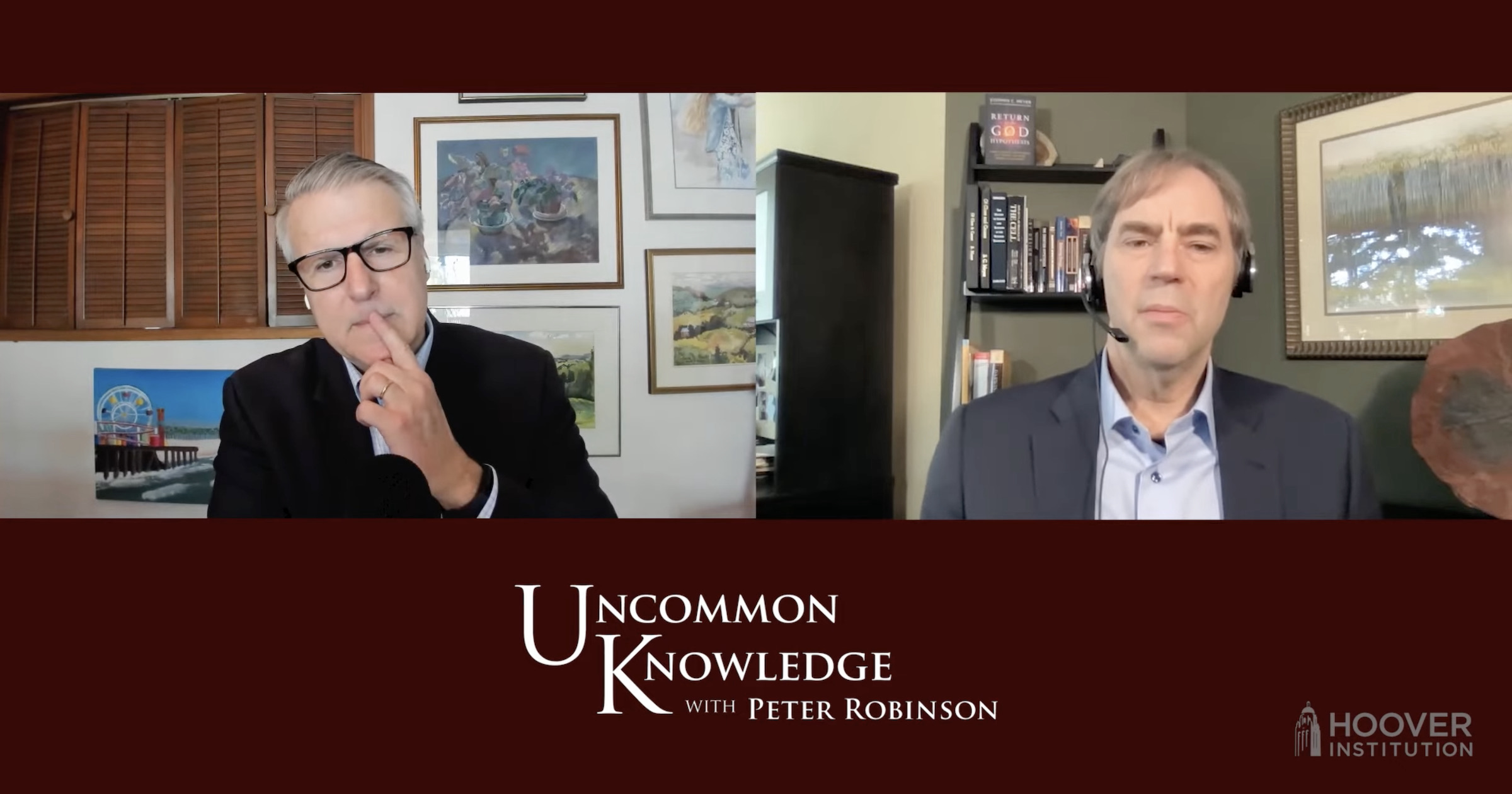 Faith & Science
Faith & Science
 Intelligent Design
Intelligent Design
Meyer, Robinson: Yes, Reason and Materialism CAN Be Separated

Philosopher of science Stephen Meyer had a VERY thoughtful and fascinating conversation with Peter Robinson, of Stanford’s Hoover Institution, about Meyer’s new book, Return of the God Hypothesis: Three Scientific Discoveries That Reveal the Mind Behind the Universe. Robinson hosts the Uncommon Knowledge program. As he points out, the three discoveries in the subtitle are central to the book’s argument, but Return of the God Hypothesis frames its case within the story of the rise of modern science and its turn from Judeo-Christian theism, in which it arose, to the alien world-view of materialism.
Waking Up into a Bad Dream?
In the latter, the religious view is a “bad dream,” as the astronomer Robert Jastrow put it. Jastrow, however, acknowledged that science was, in a sense, just catching up with that bad dream.
The great question behind the book is whether world-views can be objectively tested. Meyer, like contemporary atheist scientists (e.g., Richard Dawkins), interestingly agrees that “metaphysical hypotheses” can be tested using the tools of science. As Meyer says here:
Metaphysical hypotheses are every bit as testable in their own way as scientific ones. We can judge the merits of a metaphysical hypothesis or world-view by looking at the world around us to see if it matches the expectations that we think should follow if that hypothesis were true.
More:
When we look at these three great discoveries — the universe had a beginning, it’s been finely tuned from the beginning, and there have been bursts of information into the biosphere since the beginning — theism provides a better explanation of that ensemble of key facts about our biological and cosmological origins than do the other main competing world-views.
Disarming the Dominant Narrative
Robinson asks an important question, though. If Meyer is right, and theism (not Biblical literalism) is supported (not proved) by the best contemporary science, why do many people who regard themselves as rational see it as Jastrow’s “bad dream”?
The answer has to do with the way we view ourselves — our self-image. In the powerful secular narrative that we have imbibed from high school on, reason and materialism are yoked together and can’t be separated. Robinson recalls being inducted into this picture of reality in biology class, hearing about how the Miller-Urey experiment pretty much had the mystery of the origin of life all wrapped up, neatly explained in strictly unguided, materialist terms. But, says Meyer, that narrative can be disarmed:
It’s perfectly legitimate to reframe our understanding of reason and science within a theistic framework because it was very fruitful in the beginning [of the history of science] and it can be fruitful again, not only in our personal lives and thinking about ultimate meaning and purpose, but fruitful for science itself.
Enjoy a great conversation between Peter Robinson and Steve Meyer. It’s a very different discussion from the one Meyer had with U.C. San Diego physicist Brian Keating last week, also about Return of the God Hypothesis, but equally illuminating.
